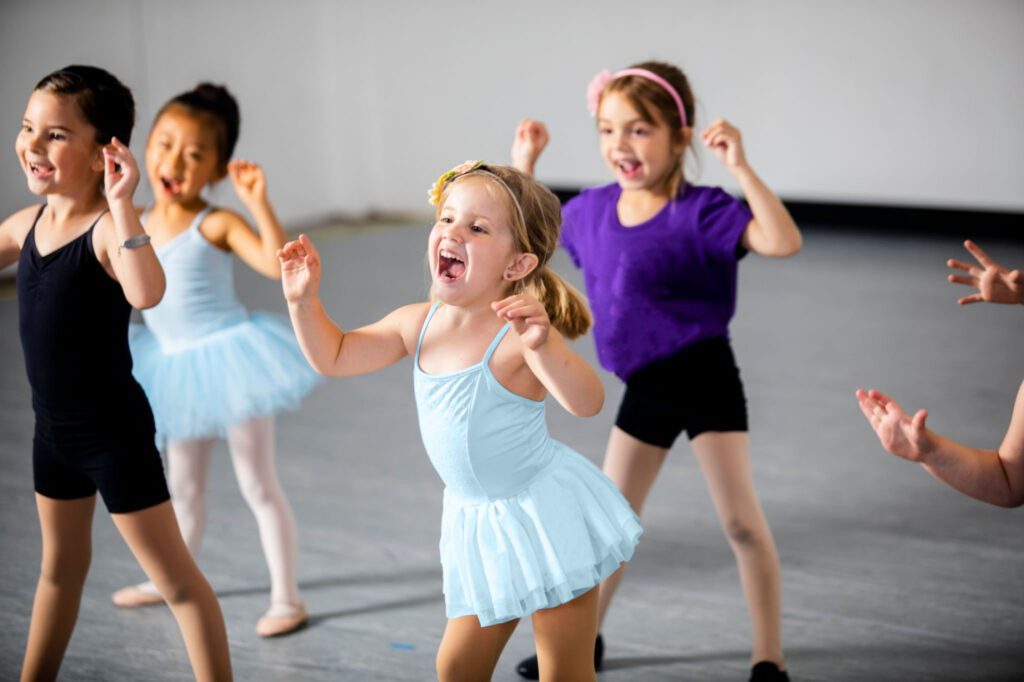Getting ready for a first dance performance is an exciting milestone for any young dancer. As a parent, you play a crucial role in ensuring your child feels confident and prepared. From choosing the right costume to managing pre-performance nerves, several aspects can help create a positive experience.
Here’s a comprehensive guide to preparing your child for their first dance performance.
Understanding the Importance of Preparation
Preparing for a performance is not just about learning the dance steps. It’s also about fostering a sense of achievement and building confidence. When children participate in a dance performance, they learn valuable life skills such as discipline, teamwork, and the ability to express themselves artistically. Understanding the importance of this moment can help parents and children alike approach the event with enthusiasm and a positive attitude.
Discussing Expectations
Before the big day, have an open conversation with your child about what to expect during the performance. Explain the details, including where it will take place, how long it will last, and who will be in the audience. Reassure them that it’s normal to feel excited and a bit nervous before performing. Encourage them to share their feelings, whether worried about forgetting the steps or excited to showcase their hard work.
Choosing the Right Costume
The right costume can significantly boost your child’s confidence. Ensure the costume fits well and is comfortable to wear. If your child is wearing ballet shoes, ensure they are properly fitted. Discuss with the dance instructor if there are any specific requirements for the costume, such as hair accessories or makeup. Involving your child in the selection process can also help them feel more excited and empowered about their performance.
Practicing at Home
Encourage your child to practice their dance routine at home before the performance. This practice should be light-hearted and fun, focusing on enjoyment rather than perfection. Create a supportive environment where they can practice without fear of judgment. Play their performance music in the background to help them get used to the routine.
Teaching Relaxation Techniques
Performance anxiety is common, even among seasoned dancers. Teach your child some relaxation techniques to manage any nerves they may feel before going on stage. Simple deep breathing exercises, visualisation techniques, or even a short meditation can calm their minds. Encourage them to visualise themselves performing confidently and successfully.
Example Relaxation Exercise
- Deep Breathing: Have your child take a deep breath in through their nose for a count of four, hold for four, and then exhale slowly through their mouth for a count of four. Repeat this a few times.
- Visualisation: Ask them to close their eyes and imagine the performance. Encourage them to picture themselves dancing beautifully, receiving applause from the audience.
Arriving Early
Plan to arrive early on the day of the performance to allow plenty of time for your child to settle in. This extra time can help ease any last-minute nerves and allow them to familiarise themselves with the environment. Let them explore the stage, see where they will perform, and get comfortable with the space.
Setting Up a Pre-Performance Routine
Establishing a pre-performance routine can help your child feel more self-confident. This could include warming up together, reviewing the routine in its final form, and practicing relaxation techniques.
Supporting Your Child Backstage
Being backstage can be overwhelming for young dancers. If possible, stay with your child until it’s time for them to go on stage. Offer reassurance, encourage them to take deep breaths, and remind them that feeling nervous is okay. Make sure they know you’re proud of them, no matter the outcome.
Emphasising the Joy of Dance
Remind your child that the performance celebrates their hard work and passion for dance. Encourage them to enjoy the moment and express themselves freely on stage. Reinforce the idea that dance is about having fun, connecting with the music, and sharing their joy with the audience.
Post-Performance Celebration
After the performance, celebrate your child’s achievements, regardless of how they felt it went. Acknowledging their effort and bravery is essential. You could take them out for a special treat, gift them a small token of appreciation, or spend quality time together discussing their experience.
Sample Questions to Ask After the Performance
- What was your favorite part of the performance?
- How did you feel while you were dancing?
- Is there anything you would like to do differently next time?
- What are you most proud of?
Conclusion
Preparing your child for their first dance performance can be an enriching experience filled with joy and growth. By discussing expectations, choosing the right costume, practicing at home, teaching relaxation techniques, and emphasising the joy of dance, you can help set the stage for a positive and memorable performance.
At Kew School of Dance, we’re dedicated to nurturing young dancers and supporting them every step of the way. For more information about our programs or to sign up for classes, contact us at 03 9123 8458 / 0410 311 008. Let your child’s dance journey begin!








